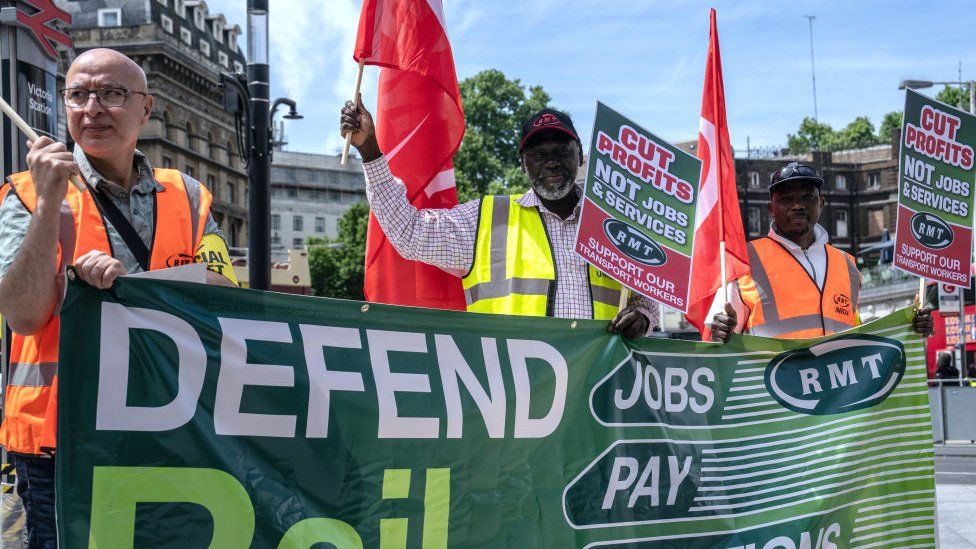By Mick Barry TD
The inflation crisis has sharply posed the question: how can the living standards of working-class people, the vast majority in society, be defended?
Public opinion has put the Micheál Martin Government under pressure to deliver cost of living relief measures – pressure that will only intensify in the run-up to the Budget on 27 September.
The Socialist Party will help build cost-of-living street protests both before and after the Budget. At the same time we will campaign for action by the trade union movement to mobilise workers’ power to defend living standards.
Trade union action
The potential impact of such a stance is currently being shown in Britain by the actions of the rail workers and other trade unionists. Rail workers in the RMT union took strike action in late June for cost of living pay increases as well as defence of jobs and conditions.
The strikes won 62% public support and a new round of work stoppages will take place now on 27 July, 18 August and 20 August.
A key to winning public support has been to politicise the issue by showing that pay is being held down for all working people at a time of record profits, and that a victory for rail workers is a victory for all.
As RMT general secretary Mick Lynch says: “The super-rich are getting richer and richer. Workers are getting poorer and poorer. We refuse to be poor anymore.”
Powerful example
Government warnings of a “wage-price spiral” are undermined by the contrast between stagnant wages and booming profits and the evident hypocrisy in always asking workers to make sacrifices while never asking bosses to increase pay without hiking prices.
But workers’ confidence has increased on the back of the rail workers’ defiance. Train drivers in Britain are now set to strike on 30 July, while white-collar transport workers and post office workers are taking action too.
Mick Lynch put it well when he said: “You have the power. A wheel doesn’t turn, a light doesn’t go on without us”. This working-class power must be fully realised by coordinating the strikes, building mass rallies and protests on strike days and stepping up the actions.
Take on the political establishment
Coinciding with the strikes, the Tory Government has been convulsed by crisis, but all the leadership contenders are united in their opposition to the RMT’s action.
Not only has the Government opposed the strikes, it plans to escalate its offensive against trade unionism with new anti-strike laws. “Minimum staffing level” legislation would aim to force a significant percentage of workers who vote for strike to pass pickets and break their own strike.
In contrast, Labour has betrayed its proclaimed constituency and has refused to back the strikes. Labour leader Sir Keir Starmer threatened to discipline frontbenchers who attended picket lines.
Ironically, 120 years ago, rail workers played a key role in establishing the Labour Party (then led by a very different Keir, Keir Hardie) after the courts were used to break a rail strike.
Labour’s current-day abandonment of the rail workers shows the pressing need for a new Left party of struggle and solidarity to defend working people and their interests.
Leaders must be forced to act
It’s a real sign of the major deficits in trade union leadership in the south of Ireland that RMT-style strikes have not been placed on the agenda here in the middle of the greatest cost of living crisis in 40 years.
But it’s also a sign of the appetite for change that there has been such a positive and enthusiastic response from trade unionists and working people generally for the combatative media performances of Mick Lynch.
Both of these indicators show the need to now step up pressure for change from below. That means firstly building for the cost of living street protests in September.
It means increasing pressure on the union leaderships by organising workers to demand that the rail workers’ example be followed here and a real fight waged to defend workers’ living standards.












